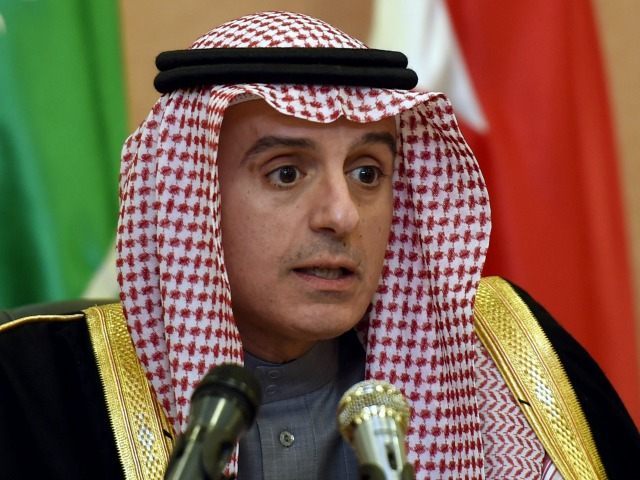Saudi Arabia’s Foreign Minister Adel al-Jubeir met with Pakistan Prime Minister Nawaz Sharif in Islamabad Thursday.
Pakistan’s prime minister “is keen to use the two-day visit to defuse spiraling sectarian tension between the Sunni-majority kingdom and Shi’ite Iran,” reports Reuters.
“Saudi Arabia’s execution of a prominent Shi’ite cleric on Saturday inflamed tension across the Middle East and infuriated Iran, Riyadh’s main rival in the region,” notes the report, adding, “Several of Saudi Arabia’s Sunni allies have broken diplomatic ties with Iran after demonstrators ransacked the Saudi embassy in Tehran this weekend.”
Shiite cleric Sheikh Nimr al-Nimr was executed along with 46 other detainees on terrorism charges. The execution has prompted a split in the entire Muslim world, primarily pitting Sunnis against Shiites, with nations publicly taking sides in the quarrel.
Kuwait, Bahrain, and Sudan have broken off diplomatic ties with Iran. Meanwhile, the United Arab Emirates announced it was “downgrading” its diplomatic relations with Iran. The execution has fueled protests in various nations, including the United States.
“Pakistan expressed deep concern at the escalation of the situation and condemned the burning down of [the] Saudi Embassy in Tehran,” reportedly said Sharif’s office in a statement, adding, “The Prime Minister called for [the] resolution of differences through peaceful means in the larger interest of the Muslim unity.”
Gen. Raheel Sharif, Pakistan’s army chief, and Sharif’s foreign affairs adviser Sartaj Aziz also met with the Saudi foreign minister.
Saudi Arabia’s visit comes after Pakistan disassociated itself from a coalition against the anti-Islamic State (ISIS/ISIL) announced by Saudi Arabia last month, which listed Pakistan as a member.
Moreover, Pakistan refused to be part of a Saudi-led intervention, backed primarily by Sunni Gulf states, in Yemen last year to combat Iranian-allied Houthi rebels.
“Pakistan can’t afford to provide what Saudi Arabia is looking for,” said Mosharraf Zaidi, an Islamabad-based commentator, according to Reuters.
Zaidi reportedly pointed out that Pakistan had the most of any Muslim-majority nation to lose from broader sectarian fight between Sunnis and Shiites.
“The real trick is to find a way to send him [Al-Jubeir] back happy without giving him anything that would upset his Iranian counterpart,” also said the commentator.
Pakistan wants to improve trade ties with both Iran and Saudi Arabia and improve access to their extensive energy resources to feed its power-hungry economy.
“It hopes to finish a major gas pipeline to Iran if sanctions imposed over Iran’s nuclear program are lifted,” notes Reuters. “But Pakistan and Saudi Arabia have cultivated a close alliance for decades, and Sharif spent time in political exile in Saudi Arabia in the 2000s, after he was ousted in a military coup.”
Pakistan received a $1.5 billion “gift” from Saudi Arabia last year to shore up its foreign reserves.

COMMENTS
Please let us know if you're having issues with commenting.